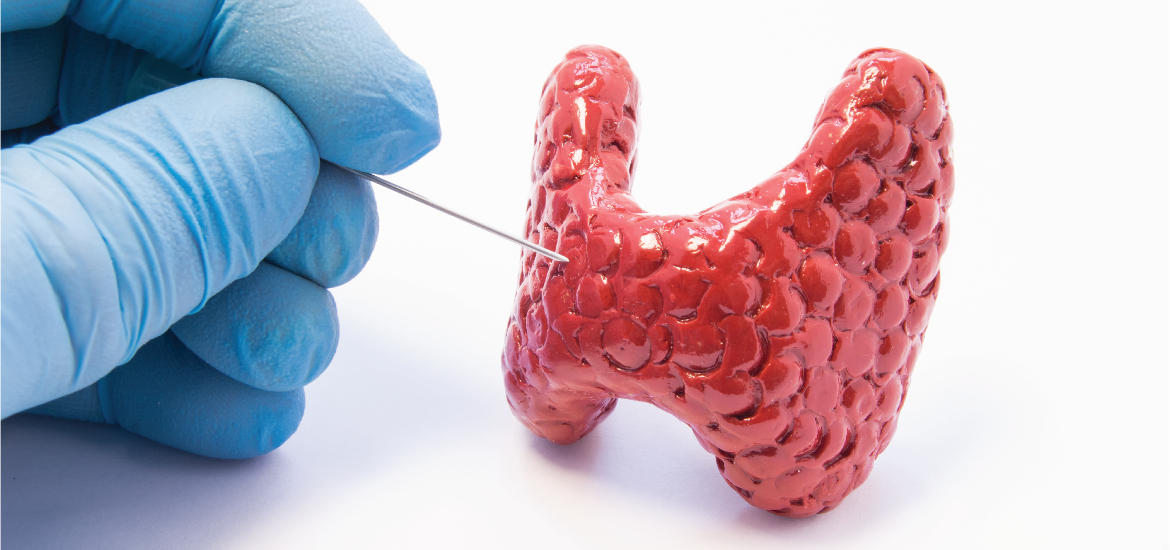
Thyroid and breast fine needle aspiration and biopsy (FNA) is a simple and safe procedure. Typically, the biopsy is performed under ultrasound guidance to ensure accurate needle placement within the examination area. It is the most widespread method for the diagnosis of cancerous lesions in the area of the thyroid gland and also of the breasts. Thyroid and breast aspirations help significantly in the oncological diagnosis and the subsequent formulation of the treatment plan.
Fine needle aspiration (FNA) is a procedure that uses a fine needle to remove cells from a nodule in the thyroid gland. Thyroid nodules are abnormal growths of tissue or fluid that may or may not be malignant. After the puncture procedure, the removed cells are checked by biopsy to see if they are malignant or not.
Paracentesis procedure is also used to diagnose breast diseases, such as cancer. During a fine needle aspiration of the breast area, a small amount of tissue or fluid from the breast is removed from a suspicious area with a fine needle and checked for cancer cells. This type of biopsy is sometimes an option if other tests show that breast cancer is suspected.
This procedure is most often performed if the suspicious finding is likely to be a cyst, that is, a cavity containing fluid. By removing the fluid in the majority of cases the patient is relieved of the pain caused by the cyst. At the same time, it is useful when it is not clear whether in an imaging examination the suspicious finding is a cyst or a solid mass.
In thyroid and breast fine needle aspirations, the area is first cleaned with an antiseptic, and then a local anesthetic can be applied. The needle is then inserted to collect cells, which are finally sent for histological examination. The size of the needle is smaller than the one used during the blood drawing procedure. Once the appropriate point for the insertion of the needle is identified, the placement is done to collect tissue or fluid. This process can be repeated several times. Once the puncture is complete, the area is covered with a sterile bandage or gauze. In our clinic all the health rules are followed and the staff is fully qualified with long – lasting experience in the field.
